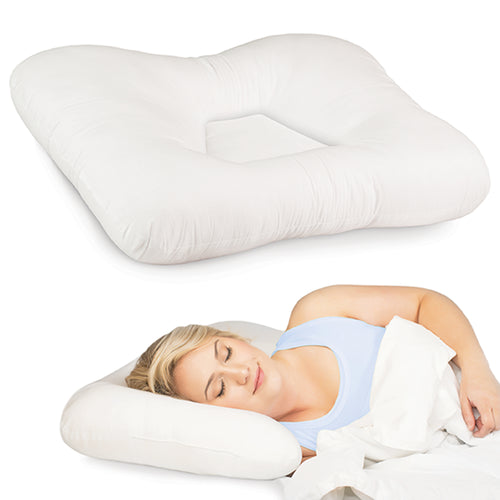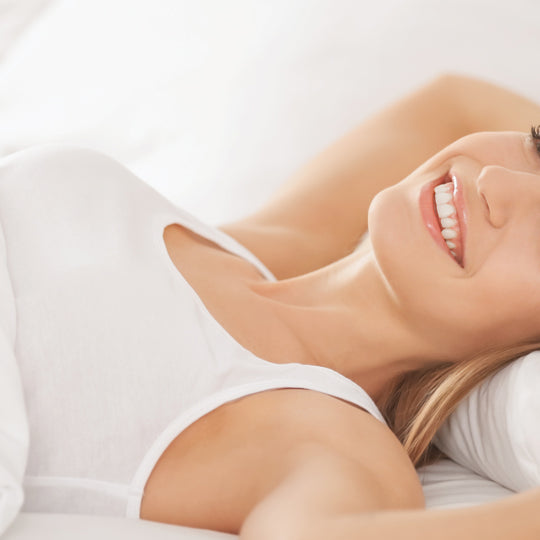

3 Tips for Better Sleep When You Have Anxiety
Brian Acton
Anxiety and sleeping issues often go hand in hand. Feelings of anxiety and worry can keep you up at night, keeping you from getting a good night’s rest. In turn, a lack of quality sleep can leave you feeling on edge and anxious the next day. In this way, anxiety and poor sleep can feed into each other.
If you are having anxiety and sleep issues, it’s a good idea to see a doctor to diagnose the problem - treatment may involve getting a sleep study, going to therapy, medication and more. There are many different types of anxiety and sleep disorders, and medical professionals can help you get to the bottom of it.
However, there are some things you can attempt at home to ease your anxiety and get a better night’s rest. Here are three tips for better sleep when you have anxiety.
- Use Relaxation Techniques Before Bed
There are many ways to calm your mind in the hours leading up to bedtime. Just about anything you find soothing or relaxing can help you achieve a calmer state of mind, but here are some common methods:
- Baths or showers. Taking a hot bath or shower within a few hours of bed will cause your body temperature to rise and then fall when you get out, recreating the process that occurs when your body temperature lowers before sleep. Plus, a hot bath can be very relaxing. Make sure to bathe for at least ten minutes and get out at least an hour before bedtime.
- Meditations, yoga, and breathing exercises. Mindfulness exercises include meditation, yoga, or breathing practices. You can find a wide variety of routines for free online, using a paid app, or at an in-person class. Feel free to experiment to find the exercise that puts you in a calm state of mind.
- Massage can help decrease cortisol, the stress hormone, and increase serotonin and dopamine. Need a good massager? Check out the Jeanie Rub® Variable Speed Massager.
- Try CBD. Studies have suggested (but not concluded definitively) that CBD can reduce anxiety, decrease the time it takes you to fall asleep, and help you stay asleep. Many Americans have reported success with using CBD to help them sleep. Check out Hempulent, our new line of CBD products.
- Do what calms you specifically. Do you have a specific activity that helps relax your mind? Maybe it’s reading a book, going for a walk, or listening to relaxing music before you go to bed. Anything that calms your mind can help put you in the right headspace for a good night’s rest.
- Optimize Your Bedroom for Sleep
Even if your environment isn’t the thing that’s causing you anxiety, it could be contributing to a restless night. Optimize your bedroom to ensure it is conducive to quality sleep. Here are some tips:
- Block out light. If too much light is coming into your room, it could prevent you from falling asleep or wake you up throughout the night. Hang some light-blocking curtains and shut off other sources of light, like your phone screen.
- Block out noise. Loud sounds from outside your home, like traffic and neighbors, can disturb your rest. Some people also have trouble sleeping when it’s dead silent. You can block out noise by wearing earplugs or running a fan or noise machine.
- Get a better pillow. Pillows that don’t provide the right level of support for your neck and head can lead to neck pain or stiffness. Some pillow materials trap in heat, making you sweat. And if your pillow is uncomfortable, you may be tossing and turning to get comfortable. Invest in a cervical pillow that provides your body the right amount of comfort and support.
- Avoid Sleep Disruptors
There are a few things you should avoid before bed to help decrease anxiety and increase your sleep quality.
- Caffeine’s effects can last for up to six hours and prevent you from falling asleep. Avoid caffeine for at least six hours before bedtime.
- While alcohol may help you to fall asleep initially, it negatively impacts the quality of your sleep. Avoid frequent or excessive alcohol consumption.
- Screen time. The blue light emitted by screens can make it more difficult to fall asleep. You should avoid screens before bed. Alternatively, you can use apps that reduce the blue light emitted by your phone or buy a pair of blue-light-blocking glasses.
In Closing
If you are having chronic sleep or anxiety issues, you should make it a point to speak with your doctor to get diagnosed and find the right course of treatment. But there are some things you can proactively do to ease your anxiety and set yourself up for a better night’s rest. Make sure you’re taking steps to get the best sleep you can and promote your mental wellbeing.
Sources
https://www.psycom.net/anxiety-and-sleep/
https://www.sciencedirect.com/science/article/abs/pii/S1389945719315515
https://www.sleep.org/can-massage-help-you-sleep/
https://www.sleepfoundation.org/mental-health/anxiety-and-sleep
Mentioned Products
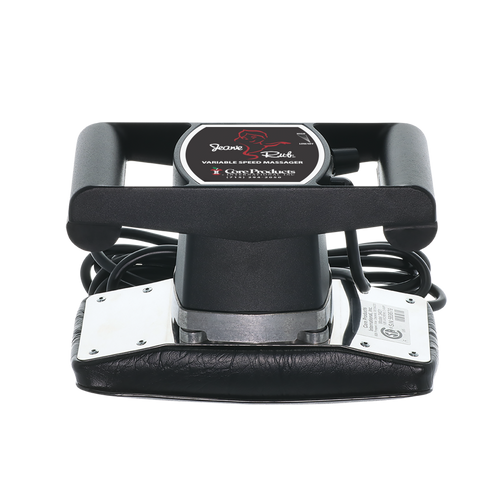
Jeanie Rub Variable Speed Massager
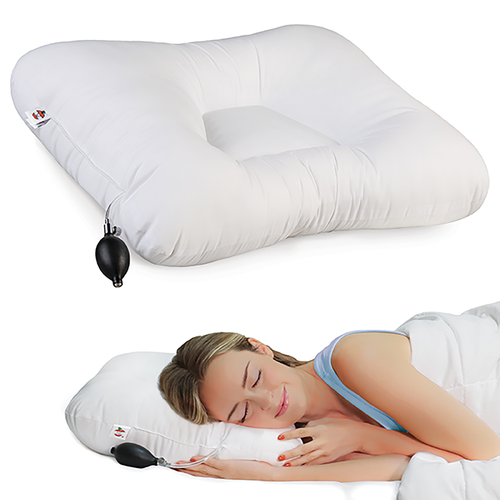
Air-Core® Adjustable Tri-Core® Pillow
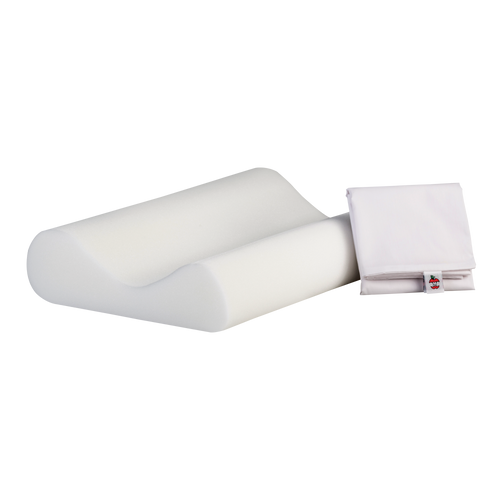
Basic Support Foam Cervical Pillow
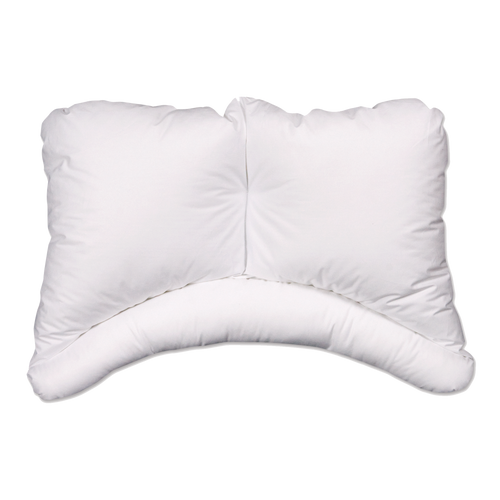
Cerv-Align Cervical Support Pillow

Cervitrac Cervical Pillow
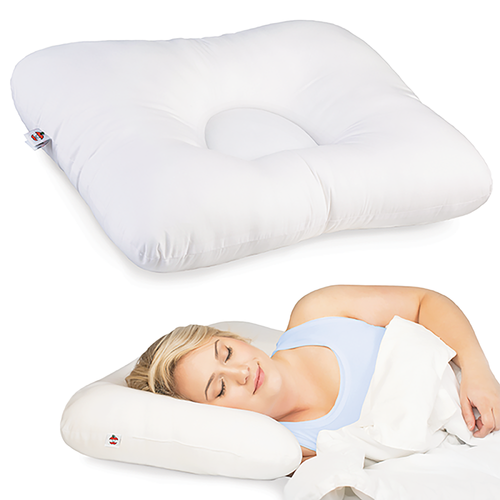
D-Core Cervical Support Pillow
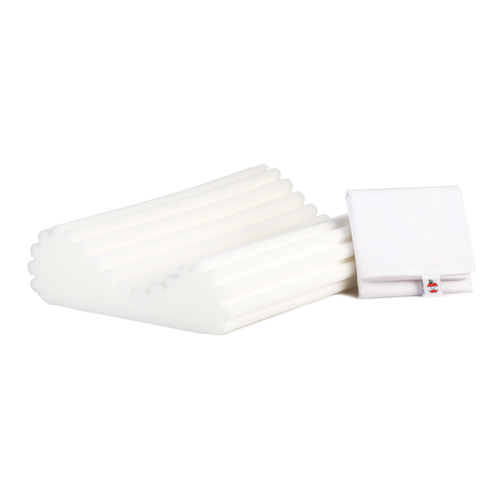
EconoWave Cervical Pillow
